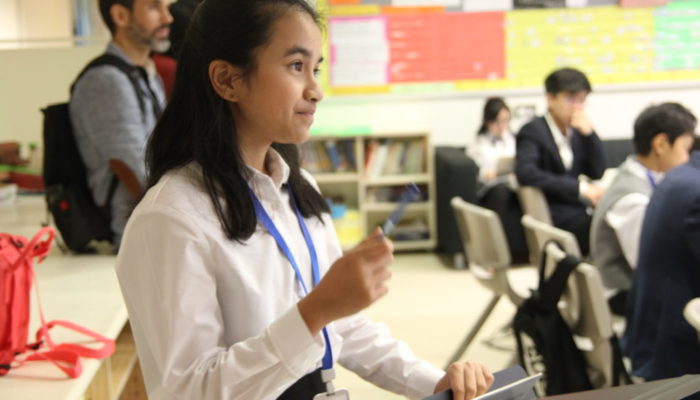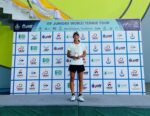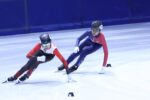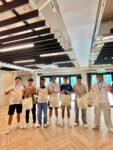Model United Nations: Distinguished Delegates & The Leaders of Tomorrow
Yes, your friends talk about it like it’s the bane of their existence – the one activity that they dread preparing for simply because it’s “so time-consuming.” Yet, they still participate in it – a seemingly self-destructive action. This is because, love it or hate it, Model United Nations (MUN) is an undeniably popular extracurricular activity at Sha Tin College. Established at STC by former Head of Middle School, Mrs May, in 2012, MUN has slowly gained traction over the years, morphing into a well-known and desirable activity. Since the 1920s, MUN participants, known as delegates, have shaped and transformed it into the prestigious and meritocratic extracurricular it is today. Through attending MUN conferences, delegates are allowed to grow and mature, as well as develop crucial debate, argumentative, and communicational skills.
Global issues and politics often go unobserved by the modern-day teenager, with most teenagers preferring to focus on academic studies, kick a ball around, or play video games – a fruitless exercise that involves moving a handful of pixels to other pixels in order to make said pixels vanish. However, MUN aims to move adolescents away from such mindless drudgery and into debate on global issues, as well as educate delegates about current events, topics in international relations, diplomacy, and the United Nations agenda.
MUN at STC is largely student-led, with teacher supervisors, known as Directors, taking a mostly backseat role and allowing students to lead as required. The MUN Leadership Team comprises of four roles: Head Delegate, Deputy Head Delegate, Junior Liaison Officer, and Press Corps Officer. In order to be chosen as a member of the Leadership Team, delegates must first qualify to become part of the delegation through the usual process.
Afterwards, they are required to submit an online application that consists of around 6 questions, with a 2,000 character limit per question. Following that, all applicants are entitled to an interview with the directors, the current Head Delegate, and another member of staff, who is typically a member of the Senior Leadership Team. While the exact number of leaders vary year by year, ten applicants were given a role in the Leadership Team this year, namely: Ellen Thomas as Head Delegate; Elton Lam, Belle Ho, and Marvin Hsu as Deputy Head Delegates; Christine Wong, Jeremy Zein, and Vania Chow as Junior Head Delegates; and Mimi Lam, Mankiu Cheng, and Sophia Zhang as Press Corps Officers.
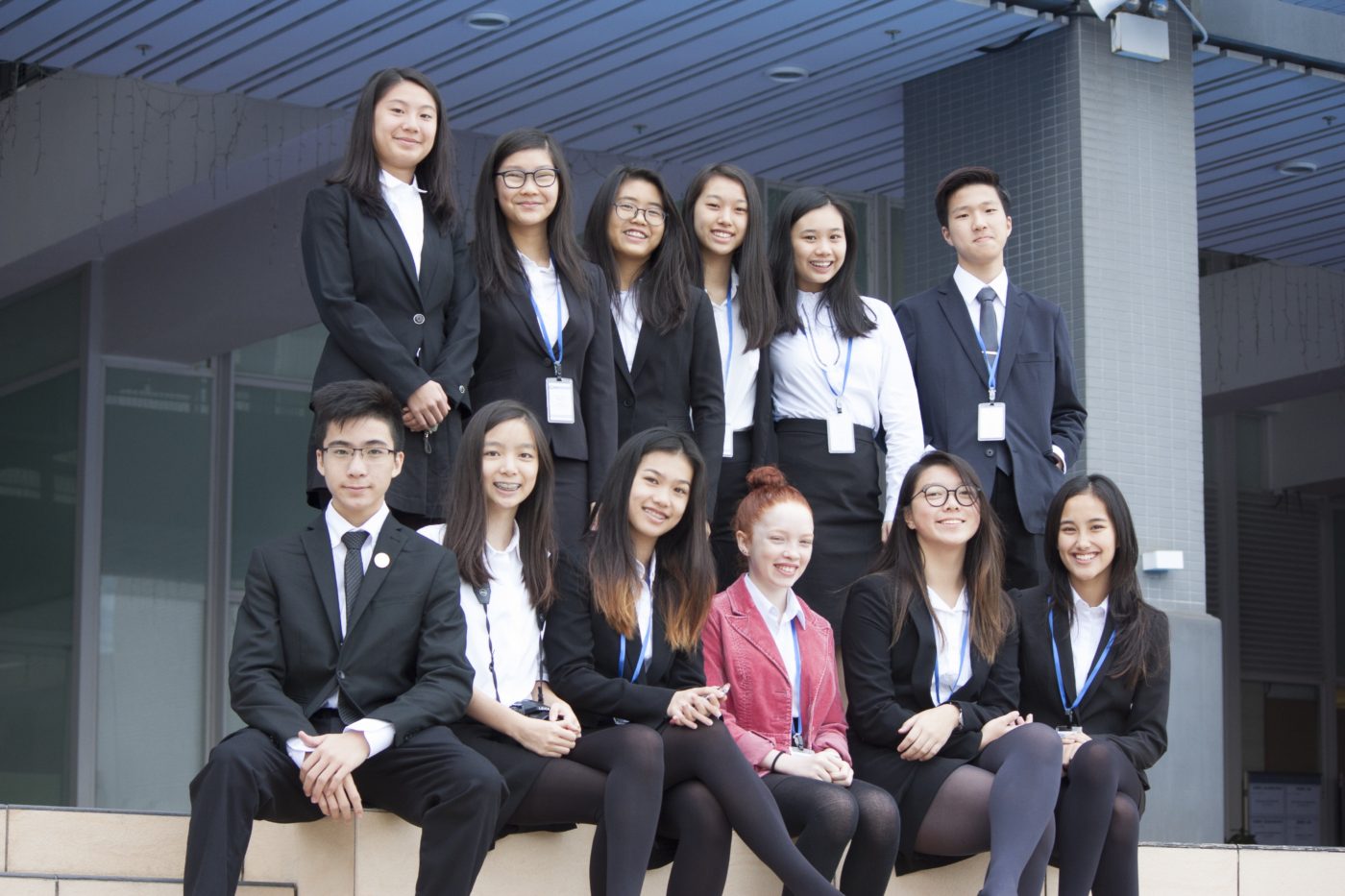
Delegates attending the Victoria Shanghai Academy Model United Nations (VSAMUN) Conference from 25-26 November 2017. Top row (left to right:) Belle Ho, Vicky Tsang, Kawing Cheung, Jaime Chan, Jasmine Wang, Reese Wong Bottom row (left to right:) Marvin Hsu, Christine Wong, Mimi Lam, Sarah Thomas, Vanessa Ng, Sanjali Ahuja.
Historically, inexperienced delegates, i.e. first-time delegates, are eased into nuances of the activity, such as parliamentary procedure and raising points, by mentors. Mentors, who are experienced delegates that have participated in two or more conferences, are assigned one or more mentees by the Leadership Team. With the annual influx of inexperienced delegates, distinguished delegates often enthusiastically take on multiple mentees in order to pass on their knowledge, with the mentees ready and eager to learn.
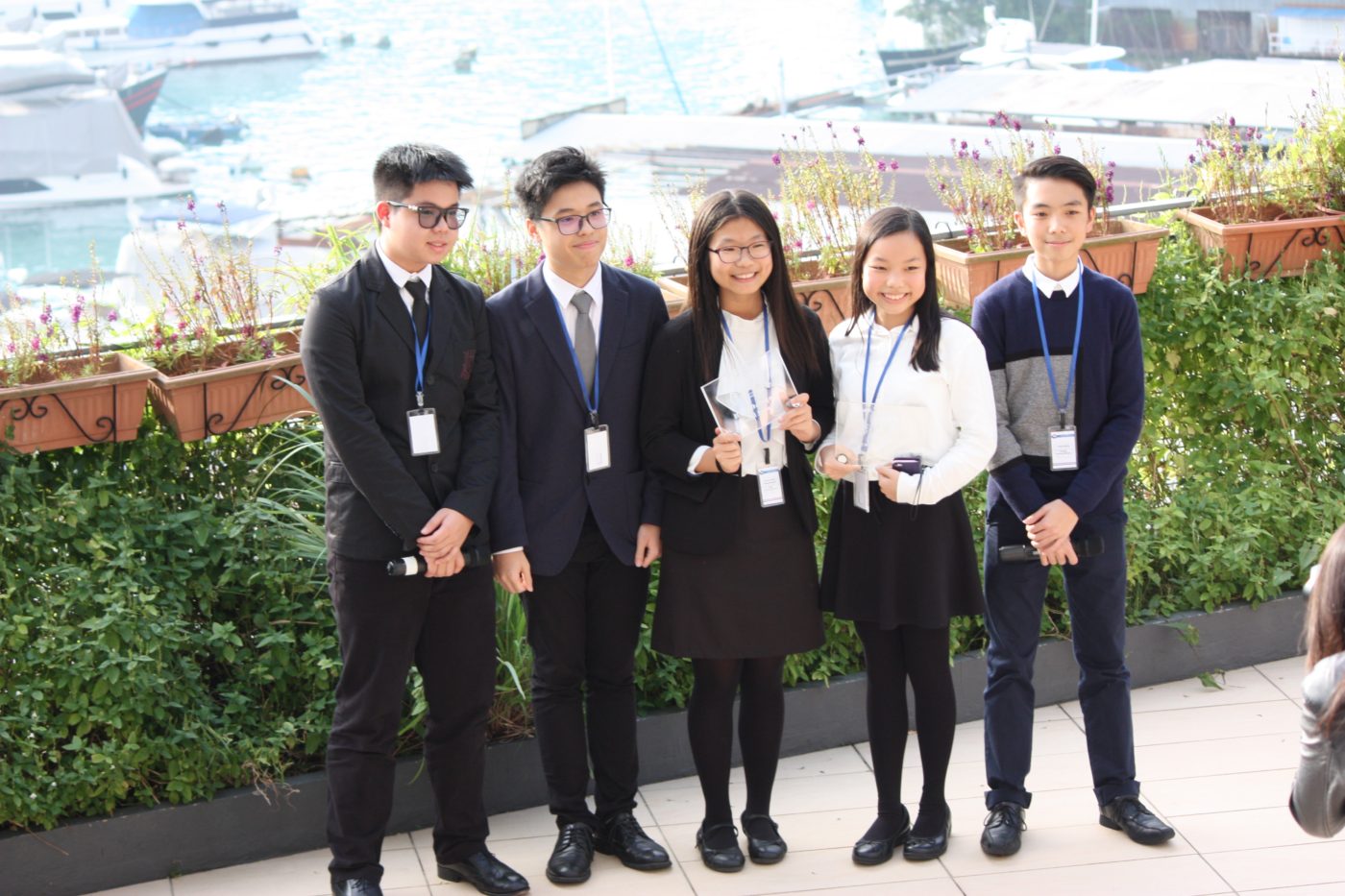
Sophia Zhang (Y9) & Hillary Lo (Y9) receiving the “Best Delegate” award for their double delegation performance at VSAMUN.
While there are several requirements potential delegates must meet before joining MUN, the measures established by different generations of MUN Leadership are in place to ensure that the quality of delegates are up to par. Such requirements include being at least a Year 9, submitting an online application, and passing a verbal interview. Year 13s are unfortunately not allowed to participate in MUN, as it is deemed too much work in addition to the IB Diploma Programme.
After an application is submitted, each MUN Leadership Team member rates the prospective delegate’s application out of 5, and an average is taken out of all the scores. In the past, any delegate with an average above 3.5 would generally be accepted into the delegation. However, with the addition of this year’s verbal interview, delegates now also have to prove their real-life prowess through answering questions ad-hoc. Annually, only one in twenty applicants score a perfect 5, reflecting the standards that delegates are expected to adhere to.
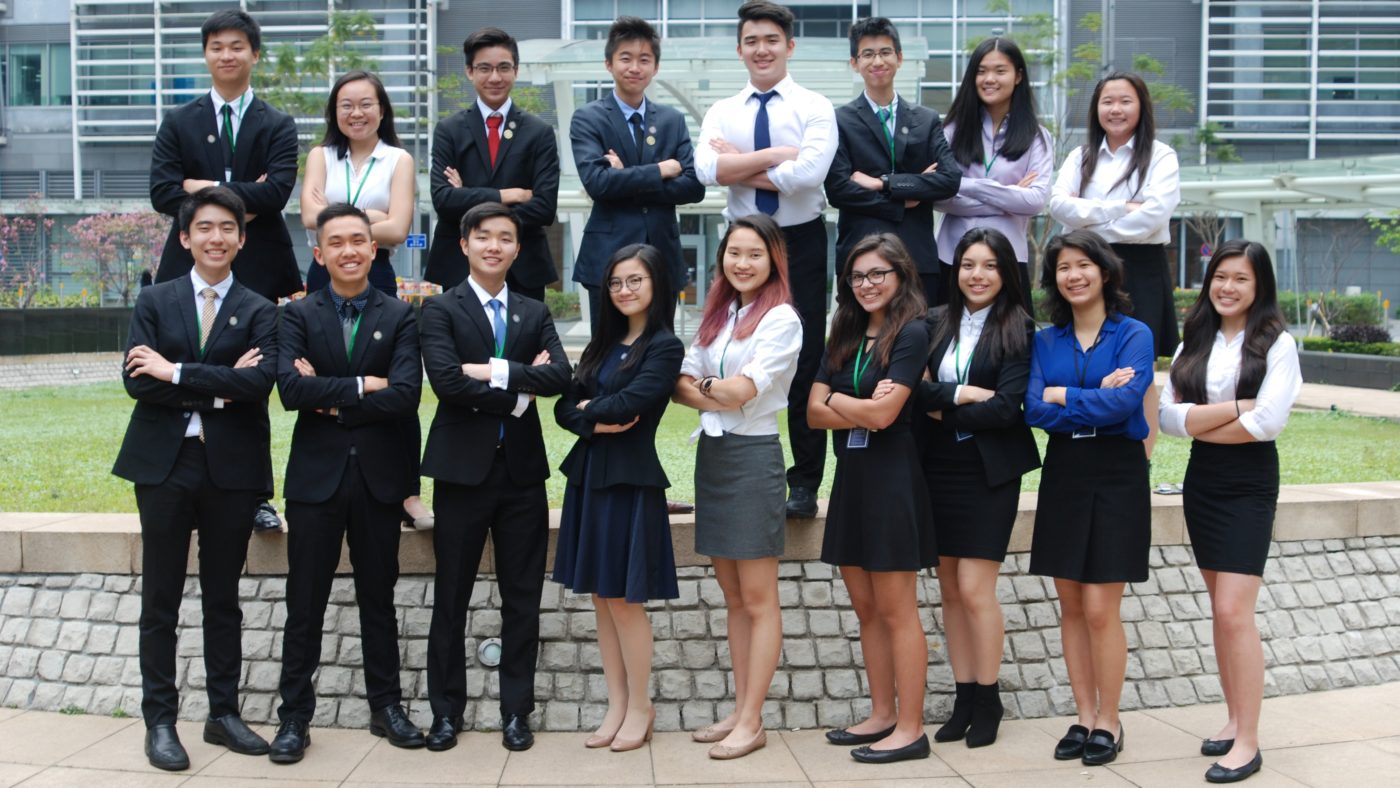
Delegates attending the Hong Kong Model United Nations (HKMUN) Conference, hosted by the HKMUN Executive Committee and located at the Hong Kong Science Park, from 25-27 March 2018. Top row (left to right): Julian Poon, Bonnie Ng, Marvin Hsu, Elton Lam, David Cheung, Clarence Lee, Jacqueline Pan, Abby Lam. Bottom row (left to right): Jonathan Zein, Jing Chen Fok, Brian Li, Martha Chow, Rachel Tong, Jaclyn Solomon, Munisa Khan, Cherry Wong, Rafaela Chan.
Sha Tin College has produced many distinguished delegates who consistently take home “Best Delegate” awards, which signify that they have contributed outstandingly to the committee in which they debated in. In THIMUN-affiliated (The Hague International Model United Nations) conferences, such as BEIMUN (Beijing Model United Nations, hosted by the International School of Beijing,) where awards are not handed out in the spirit of mutually beneficial debate as opposed to competitive arguments, our decorated delegates have instead been recognised by chairs in the form of ‘honourable mentions’ during closing ceremonies.
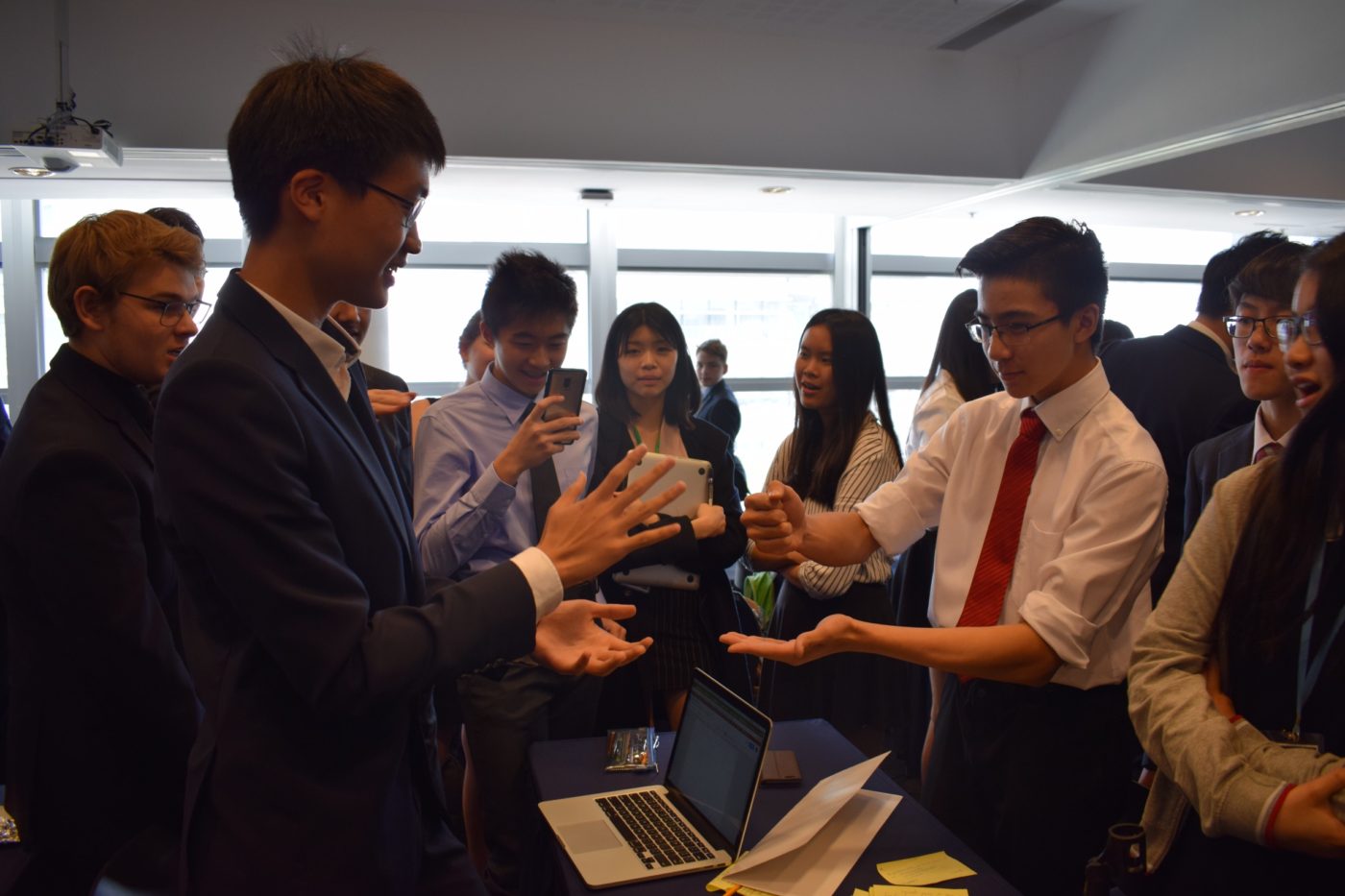
Charismatic delegates having a game of rock-paper-scissors to determine the main submitter in a friendly way.
Many delegates describe their initial introduction to MUN as daunting and complicated. “When I first joined MUN, I wasn’t really sure what to expect – I’d only heard about it from my upperclassmen and during presentations in assemblies,” says Martha Chow, ex-Head Delegate. “It was only until after I joined that I realised MUN is much more than just an activity – it’s an event that allows you to observe global issues from different points of view as you represent different countries, and form friendships and connections with all kinds of different people.”
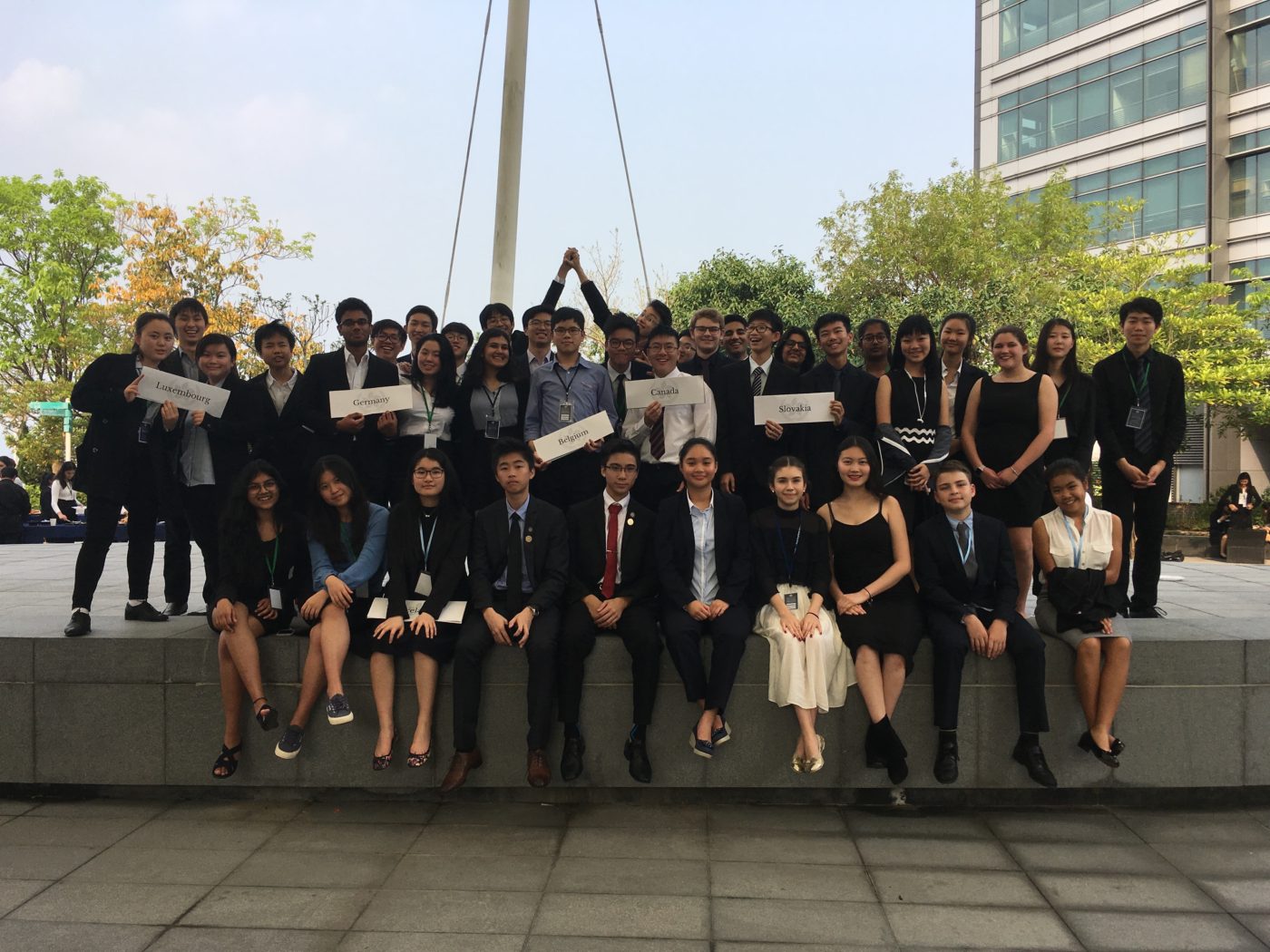
The North Atlantic Treaty Organisation (NATO) Committee at HKMUN 2018.
Although this year’s MUN applications have closed, Elton states that he strongly encourages underaged delegates or applicants that have not been successful this year to try again next year. “We are always welcoming towards young delegates; all year groups are judged by their merits as opposed to being judged by age,” he said warmly. “We look for attributes such as initiative, intuition, and knowledge of current affairs when judging written and verbal applications. To us, debating experience and opinions on current affairs is highly valued and will contribute positively towards our review of anapplicant’s application.”
By Marvin Hsu (12X1)
Copy Edited by Martha Chow (13X1)

